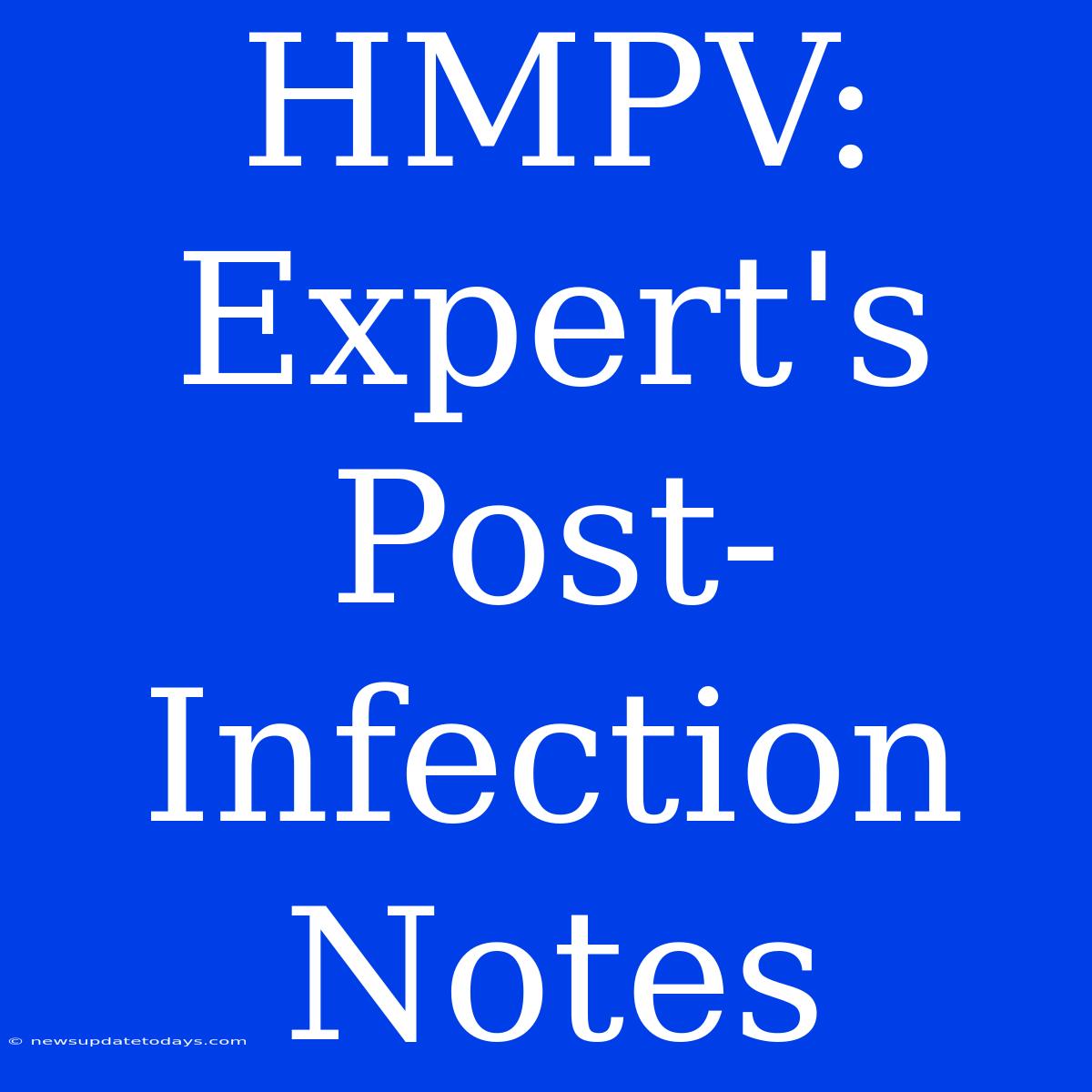HMPV: Expert's Post-Infection Notes: Understanding, Prevention, and Recovery
Human metapneumovirus (HMPV) is a common respiratory virus that can cause mild to severe illness, particularly in young children and older adults. This post compiles expert insights on HMPV post-infection, offering valuable information for improved understanding, prevention strategies, and recovery guidance.
What is HMPV?
HMPV is a virus belonging to the Paramyxoviridae family. It's highly contagious, spreading through respiratory droplets produced during coughing or sneezing. Infection can manifest in various forms, ranging from a common cold to more serious conditions like pneumonia and bronchiolitis. Symptoms often mimic other respiratory illnesses, making diagnosis crucial for effective management.
Post-Infection Insights from Experts:
<h3>Understanding the Aftermath of HMPV Infection</h3>
-
Lingering Symptoms: While most people recover within a week or two, some experience persistent symptoms like cough, fatigue, and shortness of breath. These can extend for several weeks post-infection. Experts emphasize the importance of rest and monitoring for any worsening symptoms.
-
Secondary Infections: Weakened immune systems following HMPV infection can increase susceptibility to secondary bacterial infections. This underscores the importance of seeking medical attention if symptoms worsen or new symptoms appear.
-
Long-Term Effects: Though rare, some individuals may experience long-term respiratory problems following severe HMPV infection. These long-term effects warrant ongoing medical monitoring and management.
<h3>Prevention Strategies: Protecting Yourself and Others</h3>
-
Vaccination: Currently, there's no vaccine specifically for HMPV. However, maintaining an up-to-date influenza and pneumococcal vaccine can offer some protection against similar respiratory infections.
-
Hygiene Practices: Practicing good hygiene is paramount in preventing the spread of HMPV. This includes frequent handwashing, covering coughs and sneezes, and avoiding close contact with infected individuals.
-
Environmental Control: Regular cleaning and disinfection of frequently touched surfaces can help minimize the transmission of HMPV.
<h3>Recovery and Management: Supporting Your Body's Healing Process</h3>
-
Rest and Hydration: Adequate rest and hydration are crucial for recovery. Allow your body time to heal and replenish fluids lost through illness.
-
Symptom Management: Over-the-counter medications like pain relievers and cough suppressants can help manage symptoms. However, always consult a healthcare professional before administering medication, especially to children.
-
Medical Attention: Seek medical attention if you experience severe symptoms like difficulty breathing, high fever, or persistent chest pain. Early intervention is vital in managing severe HMPV infection.
Keywords: HMPV, Human Metapneumovirus, respiratory virus, post-infection, symptoms, prevention, recovery, vaccination, hygiene, infection control, bronchiolitis, pneumonia, expert advice, healthcare.
Conclusion:
HMPV infection, while often mild, can present significant challenges, particularly for vulnerable populations. Understanding the virus, implementing preventive measures, and seeking appropriate medical care are vital steps in managing HMPV and promoting a swift recovery. This expert-informed guide provides valuable insights to navigate the post-infection phase effectively. Remember to consult your healthcare provider for personalized advice and treatment.

